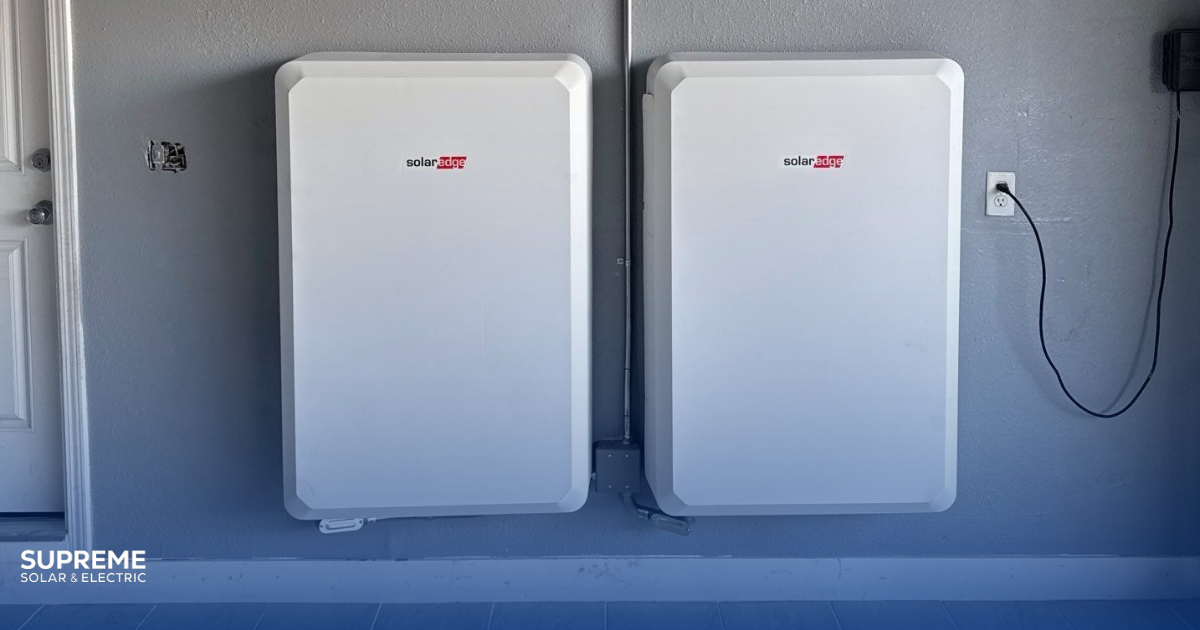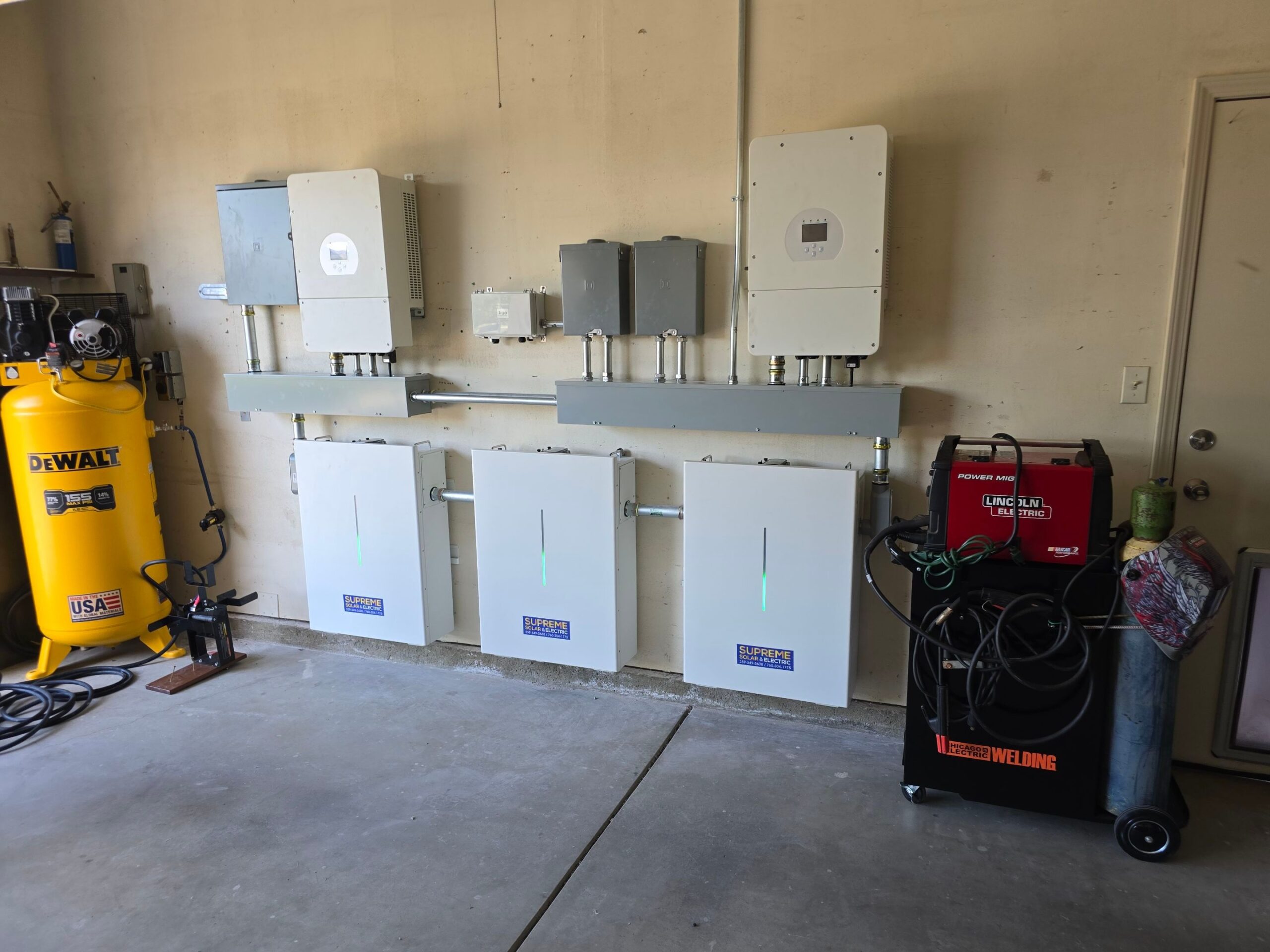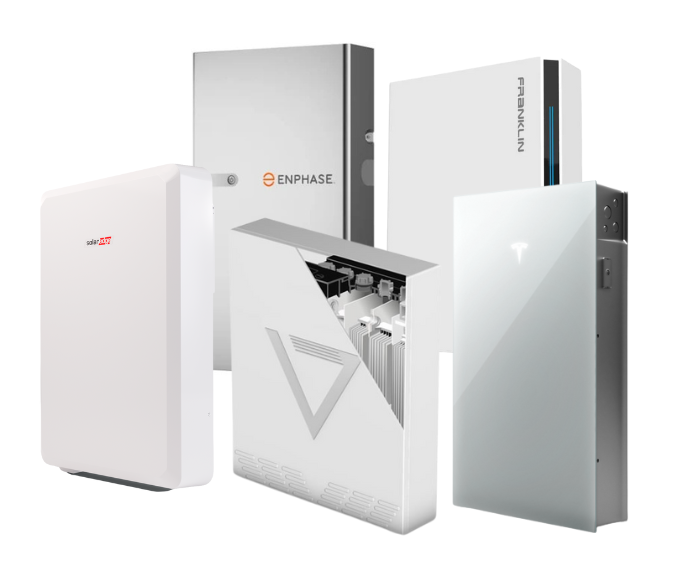Solar batteries have become an essential part of residential solar energy systems. With changes in utility policies and the push for energy independence, homeowners are now looking for ways to maximize their solar power usage. Whether you’re installing a new solar system or adding a battery to an existing one, choosing the right solar battery is crucial to ensuring efficiency, reliability, and long-term savings.
There are three key factors to consider when selecting a solar battery: capacity, backup power capabilities, and connection type. Understanding these factors will help you choose a battery that best fits your energy needs, budget, and lifestyle.
1. Battery Capacity – How Much Energy Can It Store?
The first and most important factor in selecting a solar battery is capacity, which refers to the amount of energy the battery can store, typically measured in kilowatt-hours (kWh).
Why Does Capacity Matter?
When your solar panels generate electricity, your home either uses it immediately or sends the excess power somewhere. Without a battery, that extra energy goes back to the grid, where you receive a wholesale credit that is far lower than the cost of pulling energy back at night.
With a battery, you can store the excess energy and use it when you need it most, such as in the evening when your panels aren’t producing or during a power outage. But if your battery is too small, it will fill up too quickly, forcing your system to send extra energy to the grid. If it’s too small to last through the night, you’ll end up pulling expensive power from the grid when rates are highest.
What Size Battery Do You Need?
A good rule of thumb is that your battery capacity should be 2 to 3 times the size of your solar system.
For example:
- If your solar system is 8 kW, your battery capacity should be between 16 and 24 kWh.
- If your solar system is 10 kW, you’ll want a battery capacity between 20 and 30 kWh.
This ensures your battery is large enough to store excess power during the day while lasting long enough to power your home overnight.
Other Capacity Considerations
- Scalability: Some battery systems allow you to expand storage by adding additional battery modules. If your energy usage increases over time, having a scalable option is a great way to future-proof your system.
- Depth of Discharge (DoD): Most batteries have a recommended usable capacity, meaning you shouldn’t drain them completely to maximize lifespan. For example, if a battery has an 80% DoD, a 10 kWh battery would provide about 8 kWh of usable energy before needing to recharge.
2. Backup Power – Do You Need It?
The second major factor to consider is whether your battery provides backup power during an outage. Not all solar batteries are designed to keep your home running when the grid goes down, so it’s important to determine if this feature is necessary for you.
Two Types of Battery Modes
1. Backup Mode (Resiliency)
- In this mode, the battery reserves a portion of its stored energy specifically for use during a power outage.
- When the grid goes down, the battery automatically kicks in to power essential loads in your home.
- This is ideal for homes in areas with frequent outages due to storms, wildfires, or unreliable grid infrastructure.
- Some advanced battery systems, like the Tesla Powerwall 3 and Franklin Home Power, can provide whole-home backup, while others focus on critical loads such as refrigerators, medical devices, and Wi-Fi.
2. Self-Consumption Mode (Grid Savings Only)
- In this mode, the battery is not set up for backup but is used strictly to store excess solar energy for nighttime use.
- If the grid goes down, the battery will not power your home.
- This is best for homeowners who rarely experience outages and primarily want to use their stored energy to reduce utility bills.
Do You Need Backup?
- If power outages are frequent, investing in a backup-capable battery is a wise decision.
- If outages are rare, and your primary goal is to lower energy costs, you may not need backup functionality, saving you money on installation and equipment.
Important Note: Backup-enabled batteries often require additional electrical work, such as a backup loads panel, which can increase installation costs.
3. Connection Type – How Will the Battery Integrate with Your Home?
The third factor is how your battery connects to your solar system. There are two main connection types: AC-coupled and DC-coupled.
What’s the Difference?
1. AC-Coupled Batteries (For Existing Solar Systems)
- Best for homeowners who already have solar installed and want to add a battery.
- The battery connects to the AC (alternating current) side of your electrical system, separate from your solar inverter.
- Examples of AC-coupled batteries: Franklin Battery, Enphase IQ Battery, and Neovolta Battery.
Pros:
- Seamless Integration: Optimized for use with SolarEdge inverters and solar systems.
- High Efficiency: DC-coupled design reduces energy loss during conversion.
- Scalability: Easily expandable for larger energy storage needs.
Cons:
- Less efficient than DC-coupled systems because energy is converted twice: DC (solar) → AC (home) → DC (battery).
2. DC-Coupled Batteries (For New Solar Installations)
- Designed for homes installing solar and battery storage together.
- The solar panels and battery share the same inverter, allowing direct DC (direct current) energy flow.
- Examples of DC-coupled batteries: Tesla Powerwall 3, SolarEdge Energy Bank, and Neovolta Battery.
Pros:
- More efficient because energy is stored and used in DC without multiple conversions.
- Can result in better overall performance and savings.
Cons:
- Typically not compatible with existing solar systems unless you replace the inverter.
Which Connection Type Do You Need?
- If you’re adding a battery to an existing solar system, you’ll likely need an AC-coupled battery.
- If you’re installing a brand-new solar system, a DC-coupled battery is often the best choice for maximum efficiency.
Final Thoughts – Making the Right Choice
Choosing the right solar battery comes down to understanding your energy needs, budget, and priorities. To recap:
- Battery Capacity – Choose a battery that can store enough excess energy to last through the night while preventing energy waste.
- Backup Power – Decide if you need your battery for power outages or just for lowering your energy bill.
- Connection Type – Determine whether you need an AC-coupled battery for an existing system or a DC-coupled battery for a new solar installation.
Investing in the right solar battery ensures you get the most out of your solar system, maximize savings, and gain energy independence. If you’re considering adding battery storage, reach out to us at Supreme Solar—we’re happy to help you find the perfect solution for your home!


